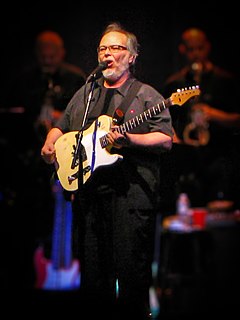Top 77 Quotes & Sayings by Walter Becker
Explore popular quotes and sayings by an American musician Walter Becker.
Last updated on November 5, 2024.
'Deacon Blues' was special for me. It's the only time I remember mixing a record all day and, when the mix was done, feeling like I wanted to hear it over and over again. It was the comprehensive sound of the thing: the song itself, its character, the way the instruments sounded, and the way Tom Scott's tight horn arrangement fit in.
It was the 'Gaucho' album that finished us off. We had pursued an idea beyond the point where it was practical. That album took about two years, and we were working on it all of that time - all these endless tracking sessions involving different musicians. It took forever, and it was a very painful process.




















